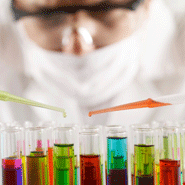The Society of Biology developed the Accreditation Programme to address this gap between the skills graduates possess and the skills employers need. A recent survey of bioscience employers by the Society of Biology found that 45 per cent of respondents couldn’t recruit candidates who met the needs of all their graduate-entry level jobs.
The Rt. Hon. David Willetts MP, who will be speaking at the Accreditation Award Ceremony today, where four courses including the University of Bristol’s BSc in Biochemistry with a Year in Industry will gain accredited status.
David Willetts, Minister for Universities and Science, said: “Well-informed students are at the heart of our higher education reforms. The Society of Biology’s Accreditation Programme will signpost students to the degree courses recognised by industry as providing the essential scientific and practical skills needed for a career in life sciences. This will further support one of Britain’s most important growth sectors.”
As the cost of university rises, students are becoming increasingly keen to maximise their employability. Degrees accredited by a professional body are attractive to future employers, and accredited degrees are already available to chemistry, physics and engineering students.
However, with the exception of biomedical science, accreditation did not previously exist for biological science degrees.
Rachel Lambert-Forsyth, Head of Education at the Society of Biology, added: “Our Accreditation Programme is unique as the criteria are based on learning outcomes instead of providing a list of knowledge and techniques that students must be taught.
It externally recognises academic excellence in the biosciences, highlighting degrees which educate the research and development leaders and innovators of the future.”
A lack of practical skills and experience of working in a research lab or field environment are common reasons stated by employers for not employing a graduate. As a result, the Accreditation criteria put a strong emphasis on academic excellence, research experience and, critically, time spent in an active research environment.
A pilot of the Accreditation Programme focusing on biochemistry and in vivo (animal) sciences was launched last June. The courses receiving Accreditation on 20 March through the pilot are:
University of Birmingham: MSci in Biochemistry
University of Bristol: BSc in Biochemistry with a Year in Industry
University of Sheffield: MBiolSci Biochemistry
University of Liverpool: MBiolSci Biochemistry (from 2012-2013 onwards)
The Society of Biology’s Accreditation Programme has been developed with the support of the Biotechnology and Biological Sciences Research Council (BBSRC), and the Department for Business Innovation & Skills, and through partnership between the Society of Biology, higher education, industry, and the Society of Biology’s Member Organisations.
Sarah Jones from the Association of the British Pharmaceutical Industry (ABPI) said: “We believe that accreditation of bioscience degrees will enable employers to feel confident that recruits from UK universities have the skills and knowledge required to make substantial contributions to the research and development of new medicines.”
Dr Celia Caulcott, Director of Innovation and Skills at the BBSRC, said: “We encourage universities to consider Society of Biology Accreditation as one way in which they can demonstrate, to students and industry partners, their commitment to providing the scientific training needed for future research and scientific careers.”
Rachel Lambert-Forsyth added: “Through the Accreditation Programme we hope to ensure a pipeline of skilled graduates into research and innovation roles and further enhance the UK’s position as a premier location to develop the bioscientists of the future.”
